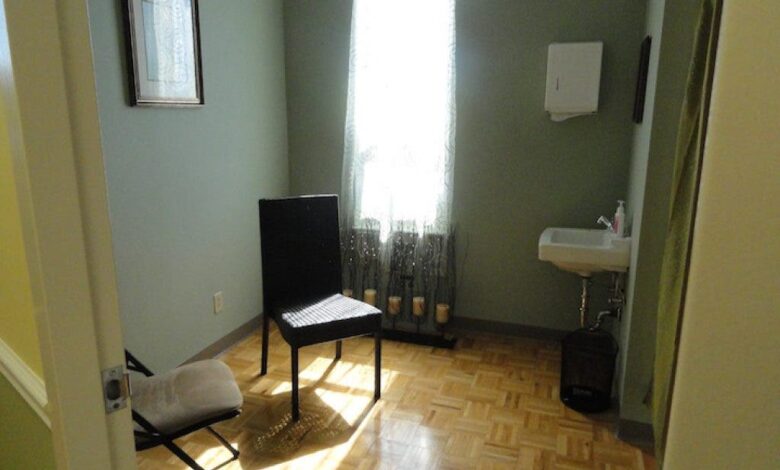New Richmond Heights Practice Offers Holistic Gynecology

[ad_1]
Dr. Poppy Daniels wants her new practice to facilitate cooperation between doctors and midwives to provide women with the best possible health care.
The Poplar Bluff, MO, resident watched those two groups of people work together during her obstetrics and gynecology residency program at Drexel University in Philadelphia.
But upon returning home, she was surprised to learn that Missouri’s support of midwifery was “far behind” that of other states.
“It wasn’t an issue,” said Daniels, recalling her time at Drexel. “We needed each other.”
Daniels has always supported midwives. She received her undergraduate and medical training at the University of Missouri, then transferred to Drexel. From there, she said, she dragged her husband back to southeast Missouri, where her parents live.
Commitment to natural childbirth led to Clayton Road office
But Daniels decided not to pursue obstetrics. She thinks the way it is often practiced causes a lot of health problems among women.
She had her own children and developed an outpatient gynecological practice specializing in the use of bio-identical hormones—those whose chemical structure is the same as that of hormones found naturally in the body.
She got to know a number of educators, doulas and other professionals committed to natural childbirth. About a year ago she met Jessica Henman, a midwife who lives in Wright City, MO, and owns Birth and Wellness Center.
The two plan to collaborate at Daniels’ new Clayton Professional Building office on Clayton Road. Daniels saw her first patient Friday and plans to visit the area twice monthly. Henman will see some of her patients in the interim.
Daniels said she chose the area because there is a bigger base of prospective patients and because in a city, more people are seeking holistic care. She is a member of the St. Louis Institute of Integrative Medicine and will speak at its November symposium.
Henman said the location also will enable them to attract patients from Illinois, where home births are illegal. The women already have patients living in Missouri cities as far away as Hermann, Vandalia and Pacific. She also points out that the space in Richmond Heights was available at a great price.
Henman previously worked as a nurse and, like Daniels, put work on hold for a time to start a family.
Since then, she has been working to establish a birth center in the St. Louis metro area. The facility would provide prenatal and delivery care with a focus on holistic treatment by midwives.
“We’ve taken this two years basically just to build all of these relationships,” Henman said.
Doctor worked to enact legal change
Daniels has voiced her support for midwives at the state Capitol in Jefferson City.
Up until 2007, Henman explained, practicing as a certified midwife was illegal in Missouri. Now that it’s authorized, the two have worked on making midwifery more accessible to residents.
“It almost seems like much ado about nothing,” said Daniels, describing the concern about midwives. Only a small percentage of people choose to have their children at home, she said.
Fear of the unknown explains some of the tension, Henman said. Additionally, pregnant women don’t want to just walk into a doctor’s office. They want to have the optimal experience. They want to talk preferences and prevent complications.
“We both see that whole underlying model paradigm shift of women really wanting to take an active role and be healthy and not just treat problems,” she said.
Daniels puts it this way: A pregnant woman is not a bomb waiting to go off.
Modern medicine versus holistic care
The complications that pregnant women experience today are in part a product of medical professionals intervening with natural processes, Daniels said. She references rises in cesarean sections, preterm births and infant mortality.
Henman is concerned by the limited time she said many doctors spend with patients. Whereas many physicians spend between three and seven minutes with a pregnant woman during a checkup, she said, she takes 45 minutes. She discusses patients’ role in staying healthy, learns what patients are doing to prepare for birth and performs nutrition assessments.
Practices used by midwives also vary from those used by many doctors. For example, midwives wait for a baby’s umbilical cord to clamp down naturally after birth, Henman said. Most doctors, by contrast, cut the cord right away.
She said that’s a problem, because cutting the cord too early can change a baby’s blood volume, which in turn affects the function of organs such as the liver and kidneys.
“We are cutting off vital circulation to that baby,” she said.
Daniels said their goal is to bring together the best practices of both midwifery and modern medicine.
“It’s actually just an understanding that something has to change in terms of our approach to childbirth,” she said.
Planning for the future
Ultimately, Daniels intends for her practice to be a place where women receive holistic health care, starting from the time they have their first period.
For her, the main question is whether a patient wants to be healthy and stay healthy.
She said she will accommodate as many patients as are interested in receiving her services. She doesn’t accept insurance, arguing that the industry isn’t built on a foundation of wellness.
The office will later host an open house and free community seminars.
[ad_2]
Read More



